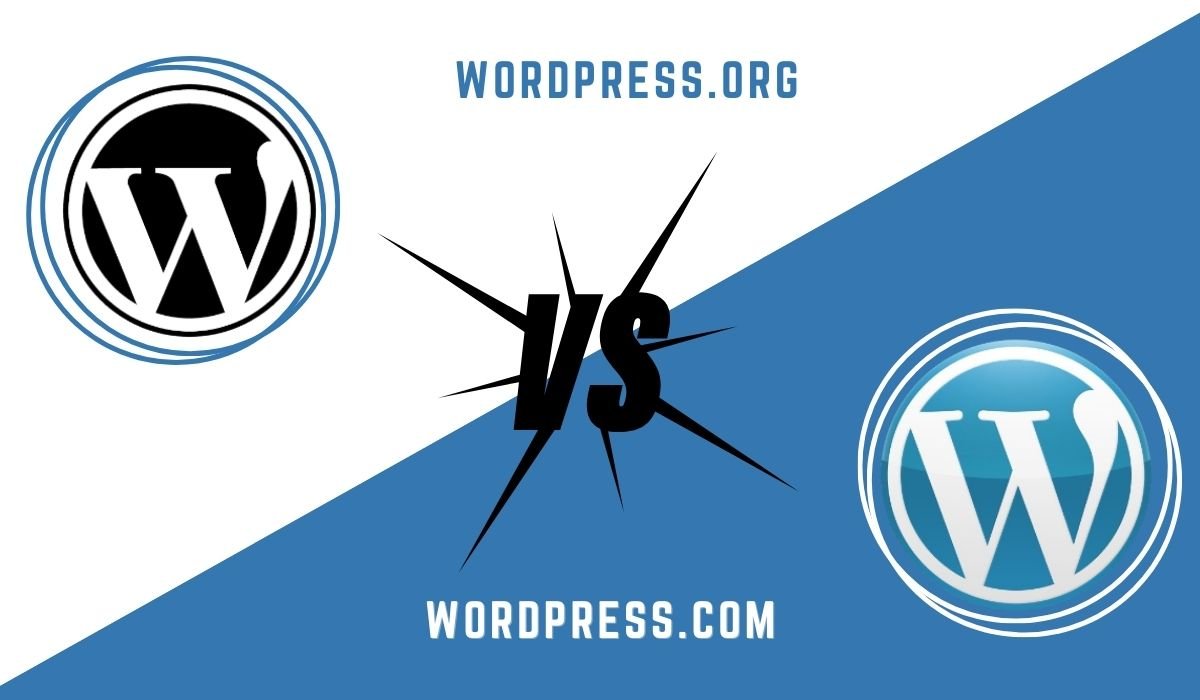The difference between WordPress.com and WordPress.org, Don’t worry. In this guide, we’ll clarify the differences between WordPress.com and WordPress.org, helping you choose the right platform for your website’s needs.
What is WordPress.com?
WordPress.com is the all-in-one website creation and hosting solution. Without requiring any technical setup or external hosting, you can create and manage your website completely using the WordPress platform with WordPress.com. It’s similar to purchasing an apartment in that you have limited control over the property but everything you need is provided.
What is WordPress.org?
Identical-looking websites are no longer available. When we talk about wordpress customization, WordPress has no limits. Thousands of free and premium themes available to give your site a unique look and feel. This uniqueness reflects your brand identity. A wide range of plugins available to you, you can quickly add new features and functionalities to your website with just a few clicks.
Key Differences Between WordPress.com and WordPress.org
Now that we’ve established the basics, let’s dive into the key differences between WordPress.com and WordPress.org:
Control and Customization:
WordPress.com
While WordPress.com offers a range of customization options, including themes and plugins, you’re somewhat limited in terms of what you can do. Certain advanced customization options, such as custom themes and plugins, are only available to paid subscribers.
WordPress.org
With WordPress.org, the sky’s the limit when it comes to customization. Since you have full control over your website, you can install any theme or plugin you like, customize the code to your heart’s content, and truly make your website your own.
Hosting:
WordPress.com
With WordPress.com, hosting is included as part of the package. This means you don’t have to worry about finding a hosting provider or managing server maintenance – it’s all taken care of for you.
WordPress.org
On the other hand, with WordPress.org, you’re responsible for finding and managing your own web hosting. While this gives you more flexibility and control, it also means you’ll need to invest time and resources into finding a reliable hosting provider and maintaining your server.
Monetization:
WordPress.com
WordPress.com offers various monetization options, including paid plans that allow you to run ads on your site, sell products through the WooCommerce plugin, and more. However, certain monetization methods may be restricted depending on your plan.
WordPress.org
With WordPress.org, you have complete freedom when it comes to monetization. Whether you want to run ads, sell products, or offer premium memberships, the choice is yours. You’re not bound by any platform restrictions or revenue-sharing agreements.
Cost:
WordPress.com
While WordPress.com offers a free plan, it comes with limitations, such as a WordPress.com subdomain (e.g., yourwebsite.wordpress.com) and limited customization options. To unlock additional features and customization options, you’ll need to upgrade to a paid plan, which starts at around $4 per month.
WordPress.org
WordPress.org itself is free to use – all you need is a domain name and web hosting. However, keep in mind that you’ll need to pay for your domain registration and hosting services, which can range from a few dollars per month to several hundred dollars per year, depending on your needs.
Which One is Right for You?
Now that you understand the differences between WordPress.com and WordPress.org, you might be wondering: which one is right for me? The answer depends on your specific needs, goals, and preferences. Here are a few factors to consider:
Ease of Use
If you’re looking for a hassle-free solution with minimal setup and maintenance, WordPress.com might be the way to go.
Flexibility
If you value flexibility and control over your website, WordPress.org offers unparalleled freedom to customize and grow your site.
Budget
Consider your budget and how much you’re willing to invest in your website. While WordPress.org may require more upfront investment in hosting and domain registration, it can be more cost-effective in the long run, especially if you plan to monetize your site.
Long-Term Goals
Think about your long-term goals for your website. Are you building a personal blog, a business website, or an e-commerce store? Consider which platform aligns best with your goals and scalability needs.


